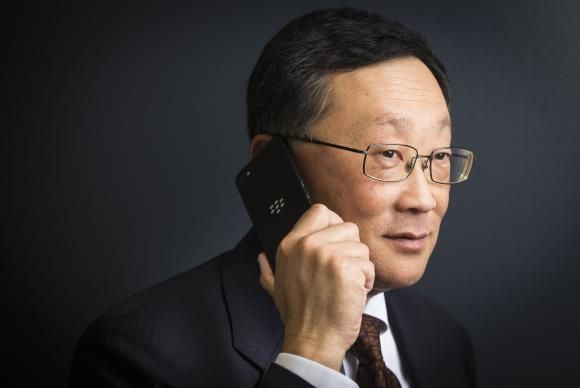BlackBerry Says Keyboards Are Key Component Of Its Future (BBRY)

Ever since John Chen became CEO of BlackBerry (NASDAQ:BBRY) four months ago, the company has been focusing on the needs of business and government users in an effort to turn the tide toward profitability, he said in a recent Reuters interview. BlackBerry announced a quarterly loss today of $423 million, but Chen says the company can be profitable again in 2016.
Chen said BlackBerry is considering three different smartphone design concepts, which it plans to release sometime in the next 18 months. Central to the next crop of BlackBerry phones is the physical keyboard, a relic of the company’s past that it hopes holds the key to its future.
When BlackBerry unveiled its BB10 operating system in the first quarter of 2013, it did so with the Z10, an all-touchscreen form factor that did not sit well with its loyal customers. It was an attempt to emulate the success of touchscreen smartphones like the iPhone and Samsung Galaxy S-series, but it was too little, too late.
By the time the company formerly known as RIM got around to releasing a BB10 device with physical keys, it had redesigned the keyboard and removed the command keys -- Menu, Back, Send and End -- that defined the BlackBerry experience for many of its customers. Last month, BlackBerry unveiled the Q20, a return to “classic” form that reinstated the command keys and opted for an old-school trackpad in addition to a touchscreen.
BlackBerry says it will release the Q20 before the end of the year. The company will also release the BlackBerry Z3 in Indonesia, a low-end device designed specifically for emerging markets.
BlackBerry will continue to cash in on its service arm: one potentially profitable component that it considered spinning off and selling while it sought an acquisition last year. There were no buyers, and BlackBerry as a whole decided to go back to the drawing board.
BlackBerry Messenger, or BBM, is the company’s instant-messaging program and one of the few remaining standout features on its smartphones. BBM messages used a phone’s data connection, routed through BlackBerry servers to the company’s handsets, whereas standard text messages (SMS) used the same frequencies dedicated to voice. BBMs are faster, and do not impose the same low character limit as SMS.
BlackBerry, in a last ditch effort to look profitable to a potential buyer, released a version of BBM for Android and iPhone in 2013. It has announced plans to expand to Windows Phone, and now competes with similar services that send messages over a phone’s data connection, including WhatsApp, Kik, Viber, Facebook Messenger and a slew of others.
Chen says his company is “taking a serious look” at a desktop version of BlackBerry Messenger, although rumors about a BBM client for PCs have swirled since before the company released BBM for Android and iPhone. Viber, which was bought by Rakuten for $900 million in February, already has a desktop client, and Facebook Messenger works with the social network’s website on traditional PCs. Viber also has 300 million registered users, more than twice as many as BBM, and Facebook has upward of 1.23 billion users in total.
BlackBerry hopes that its BBM app will rise above its competitors thanks to its quality and brand-name recognition, as well its new ability to play nice with other platforms. And if all goes well, it also hopes to lure a few of its customers back with a return to (keyboard) form.
Follow Reporter Thomas Halleck on Twitter @tommylikey
© Copyright IBTimes 2024. All rights reserved.





















